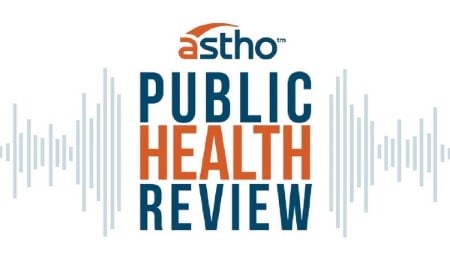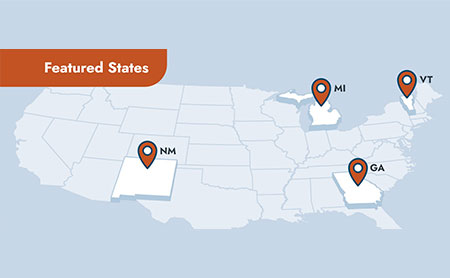Multiple intersecting social, psychological, and biological factors influence a person's well-being. Social behavioral health refers to the larger social constructs that influence behavior and impact individual, community, and population health.
The field of public health has an integral role in addressing behavioral health, which encompasses mental health, substance abuse disorders, and behavior change. While acknowledging the importance of a full continuum of services, public health often focuses on primary prevention and addressing the broader community, societal, and systemic factors essential to good health.
Featured

Creating a Shared Approach to Suicide and Overdose Prevention
A tool to help states and territories build comprehensive prevention strategies that target common factors shared by suicide and overdose.
Access the Brief
State Strategies for Advancing Viral Hepatitis Elimination
Synthesizes key actions and proven strategies for public health leaders to consider as they approach elimination planning.
Access the Report
Prevention for the Next Generation: Addressing Adverse Childhood Experiences, Suicide, and Overdose
This podcast covers why understanding the intersection of suicide, overdose, and ACEs is critical to helping people—especially youth—live happy and healthy lives.
Listen to the PodcastLatest Social and Behavioral Health Resources


What Surrounds Us Shapes Our Health—Look to Primary Prevention for Better Health
Learn More

Improving STI Treatment Reporting Forms: Pennsylvania Department of Health’s Innovative Approach
Learn More
Addressing the Youth Mental Health and Loneliness Crises Through Social Connection in Schools
Learn More
Early Success Stories
Change can take time, but every success improves our capabilities to care for our communities. Explore four powerful, successful programs below.
Learn More

CDC Clinical Practice Guideline for Prescribing Opioids for Pain, 2022: Summary of Updates
Learn MoreCollaborations
ASTHO partners with federal, state, territorial, and non-profit agencies to address a variety of social and behavioral health topics. Key partners include state and territorial health agencies, the CDC’s National Center for Injury Prevention and Control, the Substance Abuse and Mental Health Services Administration, the Office of the Assistant Secretary of Health, the Safe States Alliance, the Suicide Prevention Resource Center, the National Council for Mental Wellbeing, the American Public Human Services Association, the National Association of County and City Health Officials, and the National Association of State Mental Health Program Directors.